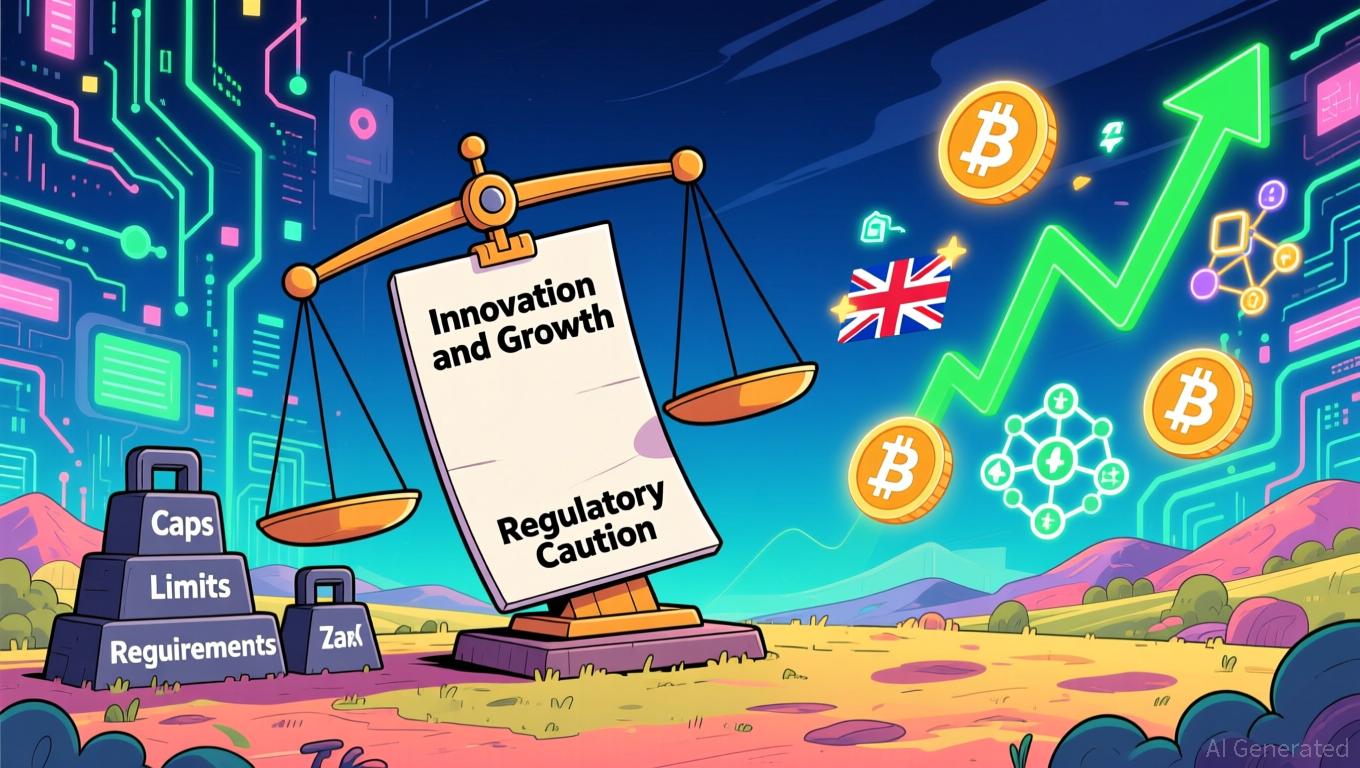Bitcoin Updates: Crypto Fear Index at 15—Is This Surrender or a Chance to Invest?
- Crypto Fear & Greed Index hit 15, a seven-month low, signaling extreme investor pessimism amid macroeconomic and regulatory pressures. - Historical data suggests such fear phases often precede market recoveries, with Bitcoin near 2022 rebound levels and Ethereum whale buying surging. - Bitcoin ETFs saw $523M inflows as institutional demand returns, contrasting Ethereum's outflows and Brazil/Japan's new regulatory crackdowns. - Analysts urge long-term investors to view the dip as an opportunity, while sho
The cryptocurrency sector is currently experiencing intense fear, as the Crypto Fear & Greed Index has dropped to 15—its lowest point in seven months—indicating a dramatic downturn in market confidence. This index, which gauges investor emotions from 0 to 100, now points to widespread negativity amid ongoing economic challenges and regulatory pressures. Although such deep fear, last observed in April 2025, has historically come before market recoveries, a swift bounce-back is not assured
The index is determined by factors such as price swings, trading activity, social media sentiment, surveys,

Wider economic issues are amplifying market anxiety. The recent 43-day shutdown of the U.S. government, which concluded on November 12, 2025, temporarily stalled regulatory progress and crypto policy development. With federal agencies back in operation, interest in Bitcoin and
ETF inflows are also showing signs of improvement. On November 12, U.S.-listed Bitcoin ETFs attracted $523 million in new investments—the highest since October 7—as institutional interest picks up. Meanwhile, Ethereum ETFs continued to see withdrawals, with net outflows totaling $107 million. This contrast highlights Bitcoin’s stronger reputation as a safe-haven asset during uncertain periods
Regulatory developments in major markets are also influencing the industry. Brazil has put forward measures to curb illicit stablecoin activity, while Japan’s financial watchdog is weighing stricter oversight for crypto-holding companies. These initiatives are intended to mitigate risks from speculation and asset abuse, though they also increase the regulatory load on the sector
Given the current environment, investors are urged to be prudent. Samson Mow from Jan3 suggests that long-term participants view the downturn as a buying opportunity, while short-term traders should wait for prices to stabilize above $105,000. "If capital rotation and ETF inflows accelerate, November could become a turning point," commented Vikram Subburaj of Giottus
The Crypto Fear & Greed Index’s sharp drop to 15 highlights a market at a critical juncture. While fear is currently dominant, past trends indicate that such capitulation phases often lay the groundwork for future recoveries. The market’s direction now depends on economic stability, clear regulations, and the persistence of long-term investors.
Disclaimer: The content of this article solely reflects the author's opinion and does not represent the platform in any capacity. This article is not intended to serve as a reference for making investment decisions.
You may also like
Airdrop Combines Equities and Internet Memes to Draw in Individual Investors
- Datavault AI (DVLT) and Scilex (SCLX) will airdrop Dream Bowl 2026 meme coins to shareholders on December 8, aiming to attract retail investors through stock-meme fusion. - The one-meme-per-share distribution triggered a 4.91% pre-market stock surge for DVLT , while short sellers face mandatory meme coin delivery obligations post-November 24 ex-dividend date. - The initiative builds on a $150M Bitcoin partnership with Scilex, leveraging blockchain trends and aligning with broader market optimism for cryp
UK’s Conservative Approach to Stablecoin Regulation May Leave It Lagging Behind International Competitors
- UK regulators propose strict stablecoin caps (£20k/individuals, £10m/businesses) and 60% UK debt backing to mitigate risks, sparking concerns over stifled innovation. - Critics argue 40% unremunerated central bank deposit requirement threatens UK competitiveness against US and Singapore's more flexible frameworks. - Global rivals like the US (GENIUS Act) and EU (MiCAR) advance stablecoin adoption, while UK's delayed finalization risks losing first-mover advantage in digital finance. - Industry leaders ur

UNI token rises after governance proposal for fee switch
Singapore tests tokenized government bonds and prepares stablecoin legislation for 2026
